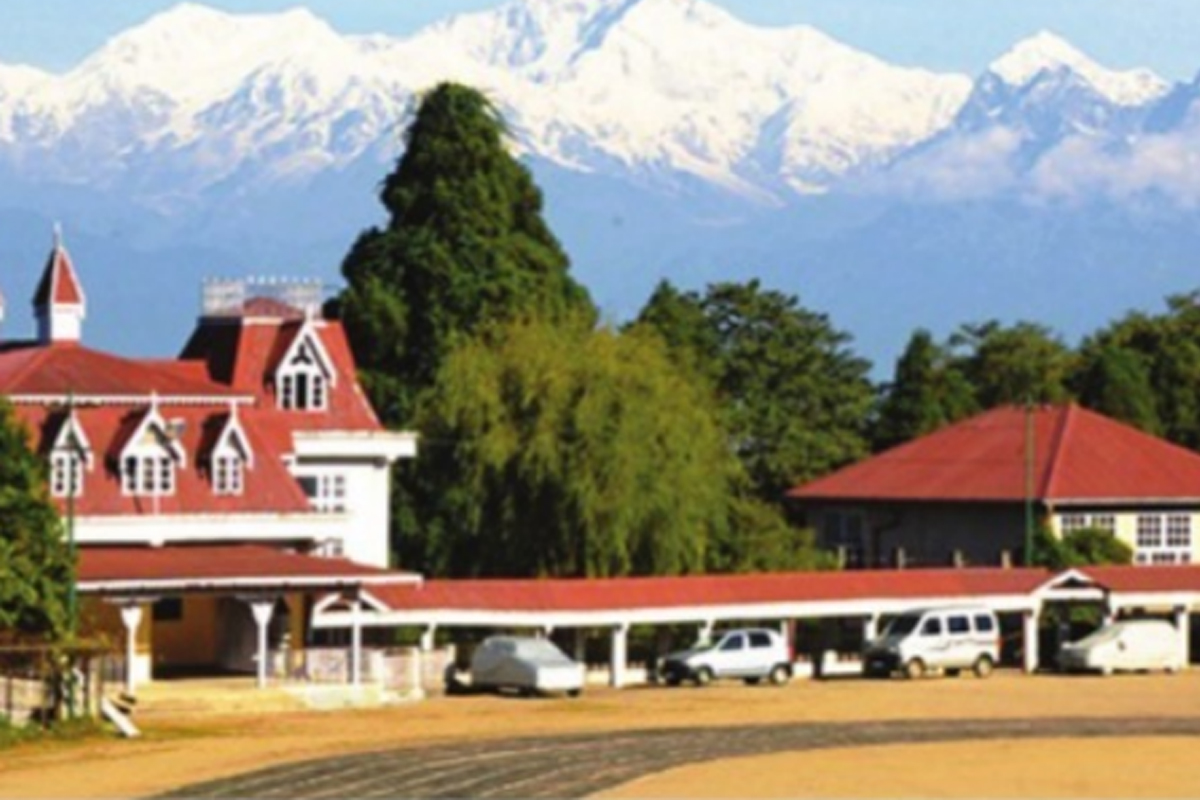A student who embarked on his education in 1966 at St Paul’s School in Darjeeling would remember an impressive teaching faculty; in the 1960s teachers were from India and the UK. There was KN Joshi, heading the department of Hindi; S Sen, also highly qualified, headed the Bengali department. C Hawley, a Master’s from Oxford University was in charge of the department of English while Yvonne Hawkins from Oxford University taught physics in Classes V and VI. There was also Richard Mountford who had a Master’s in history from St Stephen’s College and Delhi University
The school’s music department was managed by Patricia Blackley, who had a Master’s in music from the University of Cambridge. One may question the reason for appointing such a highly qualified person. Is music as a subject in school that important? After all, music does not figure in the school leaving Cambridge Board Exams. Be that as it may, a number of such schools ensured that music prevailed along with regular academics. Blackley’s responsibilities entailed singing to the accompaniment of a piano; she controlled the orchestra and conducted its performance. The school’s choir was her entire responsibility where students sang under her direction and tutelage to the accompaniment of an electric Hammond organ, which was played solely by her. It summarises and also highlights her busy schedule which ranged from the junior to senior schools.
Advertisement
A person, like Blackley, who had accomplished her post graduation from Cambridge, must have studied various spheres of music. To enlighten our minds let us view what exactly a degree in music entails from the University of Cambridge. It will also tell us that these teachers who served their respective tenures were indeed qualified to an impressive level.
St Paul’s did not confine teaching this subject to western music. Indian classical music was also taught and separate teachers were engaged for playing the sitar, harmonium, tabla with vocal music. Musical plays composed by Gilbert and Sullivan, were performed. Musicals with Indian classical music were similarly staged.
To excel in any academic discipline one needs a focus, which must be pursued from the onset of a course. Music is no exception because like any subject there are different dimensions a student must learn. The undergraduate course, or Tripos, in Cambridge University is designed to introduce a student not only to a range of music but to the many ways of thinking and understanding the subject. As a principle it is similar to the study of literature, which encompasses the style of certain writers.
In the first year the focus is to establish a foundation in the techniques and history of Western musical tradition and understanding the main roles of music in today’s world. Notwithstanding a student’s academic background they can identify their core skills, an essential guide for their progress later.
As the student progresses through this graduation course they enjoy increased freedom to decide on specialised courses of music and different approaches of studying it. The freedom gives them a choice of selecting different pathways, be it composition, performance, ethnomusicology, which is the study of music, from cultural and social aspects and popular music.
The first year, Part 1A, comprises four components, which are like building blocks of the degree. Lectures introduce students into basics involving the understanding of music in the past — the selection of historical case studies illustrating how different kinds of historical evidence can be brought together to appreciate music in a particular genre. Listening and reading in the course also imparts a mental map of music’s past and present.
An emphasis is put on tonal music, which is an organised system of tones, like the tones of a major or minor scale. The range of teaching the category of tones varies from Brahms to Jazz, opening a vast musical repertory, enabling students to understand other traditions. On the other hand, the second year goes into interesting routes, like orchestral arrangements and adding a soundtrack to a film. The student may choose to either play an instrument or write about it.
A student in the third year may decide, in line with their interests and skills, if they will need a chosen career path. The career path involving music is vast, from composition to mastering a particular instrument, or teaching a section of the subject. When the student progresses into their post-graduation, they decide which section of music they wish to study and develop further.
Blackley had specialised and focused on playing the piano, in tandem with vocal music. When she sang a treble note, during choir practice in St Paul’s, she would achieve the desired pitch effortlessly, thus encouraging members of the choir, singing treble, to emulate the same tone. She literally brought her learning from Cambridge to the Darjeeling Hills.











